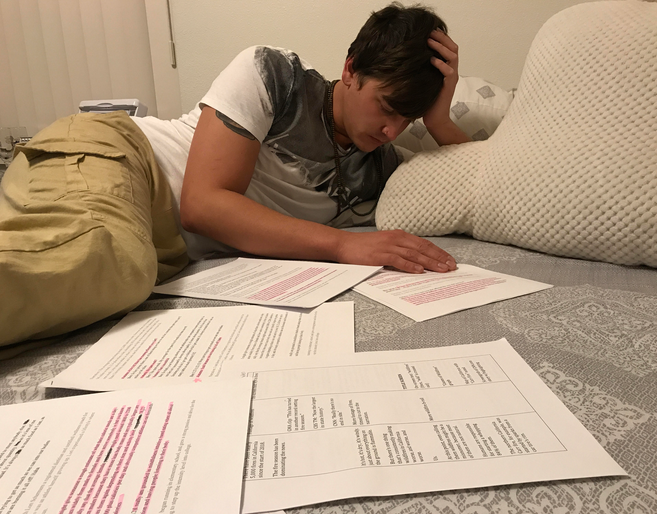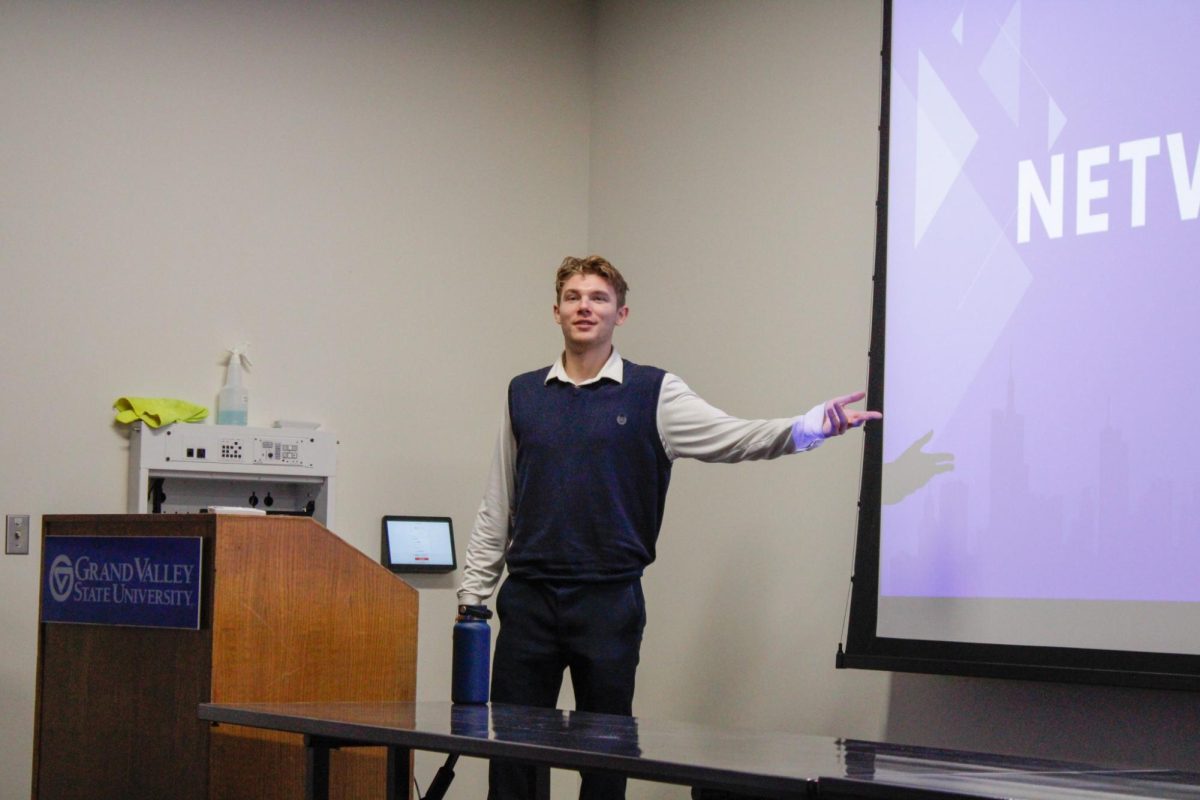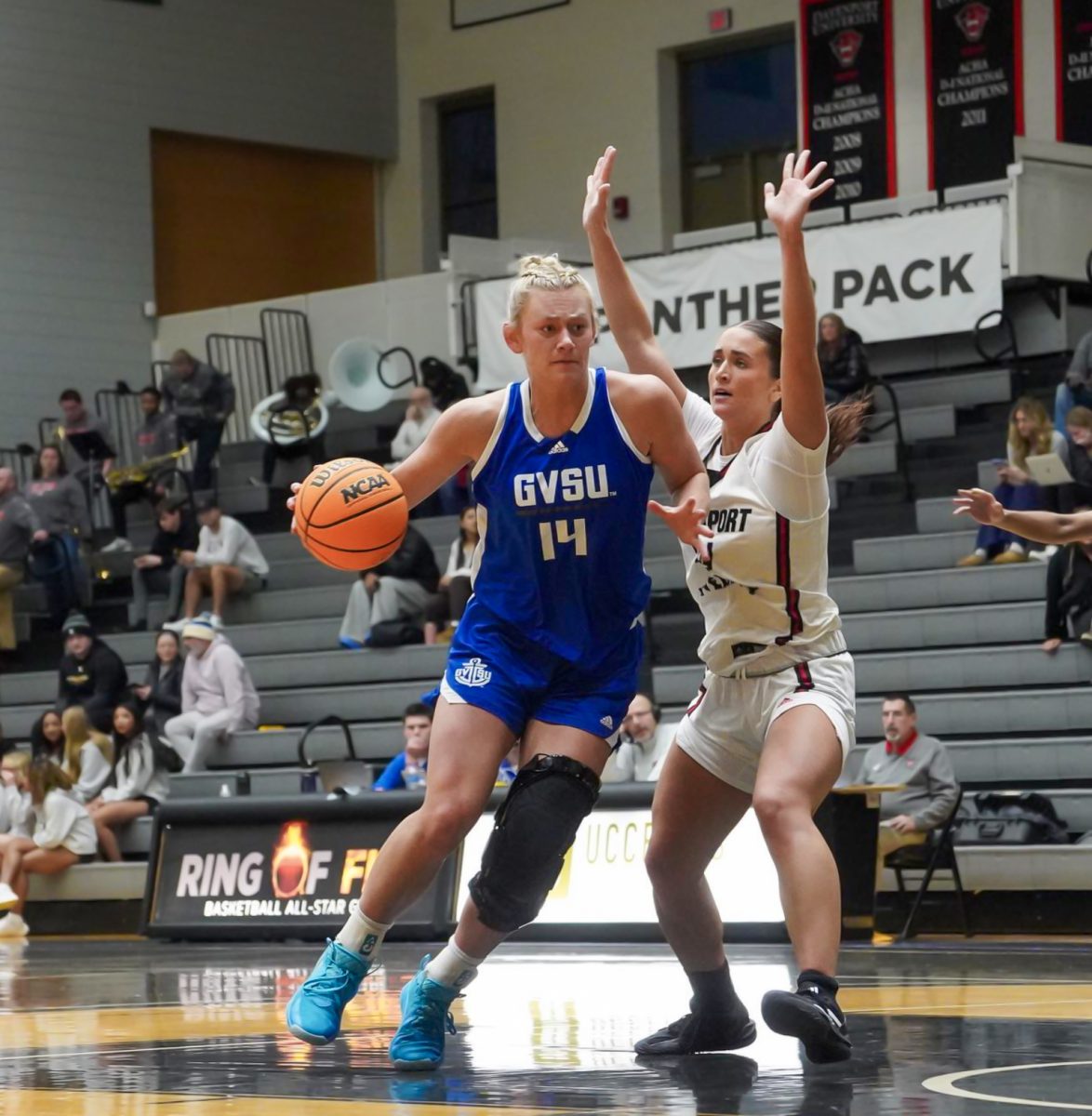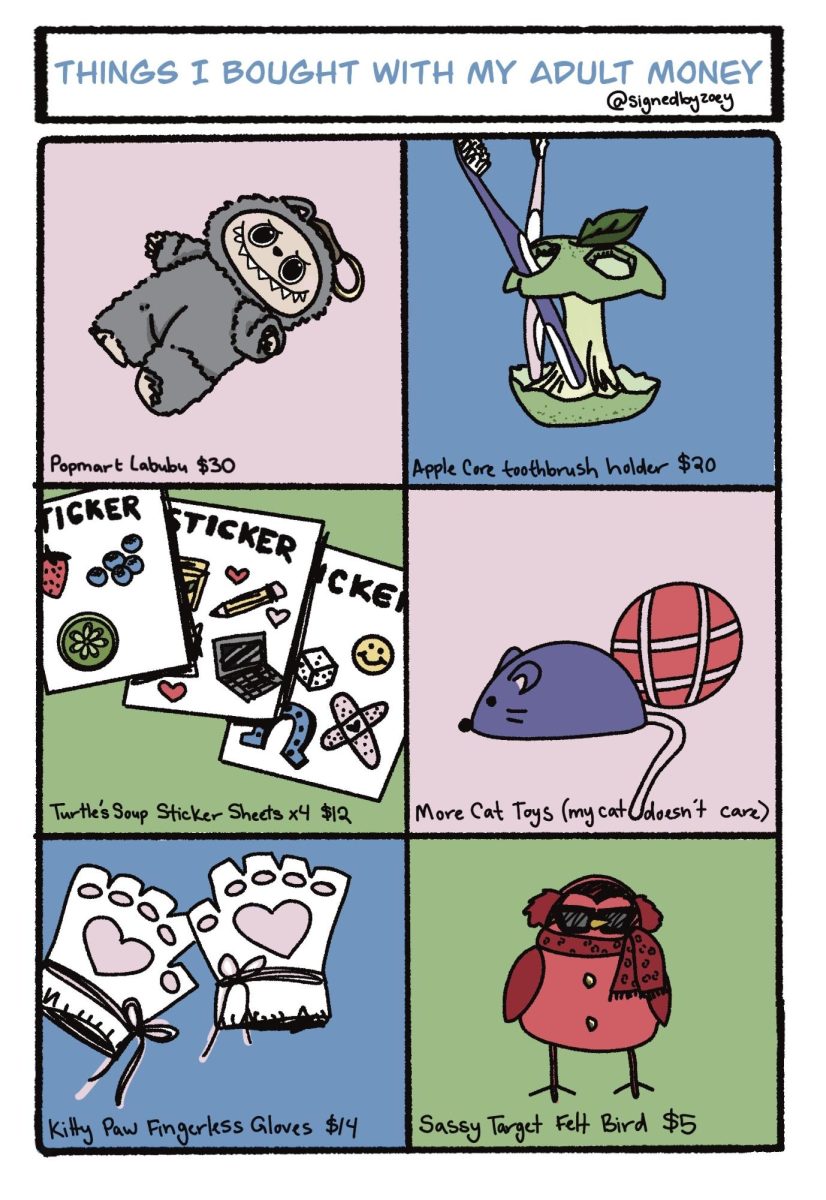Increasing levels of sleep deprivation challenge many college students
Mar 9, 2020
In recent years, a large percentage of Grand Valley State University’s student population has struggled to reach the necessary hours of sleep. An important determinant of overall health is getting the adequate amount of sleep — and if you aren’t, using the correct techniques to solve the problem.
According to the Centers for Disease Control and Prevention (CDC), adults aged 18 to 60 years old need to be getting seven or more hours of sleep every night — something college students aren’t getting. Stress, anxiety, depression and tobacco use are just some of many major influences on how effective a college student can sleep at night.
“There are three main “P’s” when it comes to the main causes of insomnia,” said Kelly Waters, Doctor and board-certified Neurologist of Spectrum Health Hospital. “There are predisposing factors, precipitating factors and lastly perpetuating factors.”
According to Waters, one predisposing factor could be someone who is high strung or experiencing high stress levels. One precipitating factor could be worrying about aspects of our lives such as a big test coming up. She describes perpetuating factors as spending too much time awake in bed or having the lights on late at night, stimulating the brain to stay awake. Not having a specific time and steady schedule going to bed and waking up can prevent an individual from having a healthy rhythm that their bodies are used to.
“My classes start at different times every other day, so it’s hard to get the same amount of sleep every night,” said GVSU junior, Alina Pasternak.
Other common struggles that Waters sees is students staying up too late to finish assignments along with heavy work loads. Focusing attention on finishing assignments and not on creating healthy sleeping habits can lead directly to sleep deprivation.
“I struggle with getting seven or more hours of sleep at night,” GVSU senior, Hannah Swain said. “It’s so hard not only balancing school and personal life, but work as well. My homework is done at 1 a.m. because I am in classes all day and my night job ends at 11 p.m., so I stay up late constantly doing my homework when I get out of work.”
Another problem is depression, the leading cause of sleep deprivation according to Centers for Disease Control and Prevention. Its associated with disturbances in sleep such as REM sleep fragmentation, a reduction of slow-wave sleep and circadian rhythm deregulation. Anxiety is another issue, causing difficulty in initiating or maintaining sleep, restless or unsatisfying sleep, nightmares and alterations in sleep architecture similar to that of depression.
Data from the Spring 2015 National College Health Assessment (NCHA) II shows 13.1% of undergraduates have been diagnosed with or treated for depression and 15.8% with anxiety disorder. 20% have reported that their academic performance has been adversely impacted by sleep problems. Some students are turning to sleeping medication like Ambien and Lunesta as a quick fix for their problems.
“Medications are there to help,” said Waters. “But they don’t technically treat what’s underlying the issue. They help with the symptoms.”
Waters talked about how there can also be other scary side effects of these medications, like memory loss. She doesn’t prefer to prescribe sleeping medication to her patients immediately as a first option. A recent review of adverse sleeping medication cases by the U.S. Food and Drug Administration found 20 cases where misuse of medication was deadly, with sleepwalkers crashing, drowning or dying of hypothermia or carbon monoxide poisoning. Injuries included falls, serious burns and even accidental gunshot injuries.
“As a prescriber, I prefer sleep aids to be short term,” Waters said. “This is because they are habit forming. Your body can get tolerant to them and then you need a higher dose. This can later create memory concerns and also pan down brain activity for memory forming, the time that the medication is in your system. If you can get your body, your own circadian rhythm and your biochemistry working for you for your sleep, that actually has the most evidence for long term good outcomes over any medication.”
She also recommended giving common medications like Lunesta, Sonata or Ambien time to get out of your system before going about your day. If you don’t give the medication enough time to process, it will directly affect your memory processing centers. Waters recommends starting sleeping pills on a night when you don’t have to work or drive the following day. She also added it’s vital to avoid drinking.
“It’s important to give your body enough time to metabolize the medication,” Waters said. “Otherwise you wake up, the medication is doing what it needs to do, you get to work and you don’t remember how you got there. You know you drove, you have the keys in your pocket, but you don’t remember the drive. That’s probably the most dangerous.”
Senior Sam Arnold began taking Ambien to help with his stress from school and relationships that caused him to struggle with sleep.
“I was taking it and I had to keep upping the dosages until I was taken a full 10 mg everyday,” said Arnold. “That was a high dosage to make it work. I was relying on it so heavily. I shouldn’t have taken it for so long. It was only meant for a short time period and I relied on it too much.”
There are ways an individual can train the brain to help with their sleep deprivation. Some helpful strategies include not focusing too hard on falling asleep, creating a calming atmosphere and not staring at a phone or television screen before bed. A study done by Harvard researchers reveals that when college students are on their phones in bed checking social media, their brains will recognize the bed as a lounging area and not a place to sleep.
“It is a lot of conditioning like dimming the lights, putting on background noise, turning the T.V. off and setting your cell phone aside so you aren’t tempted to look at notifications,” Waters said.
Moving forward, it’s important for students to recognize the factors that are consuming their lives and contributing to sleep deprivation. The next step is dedicating time to make sure they’re practicing a healthy sleep schedule, as well as establishing a consistent routine of going to bed at an appropriate time. Sleep aids and medications should be used a a last resort for more long term issues while finding more beneficial and healthy tactics.
“If we can get your body working for you without a medication, that has the most long-term benefits,” Waters said.


























